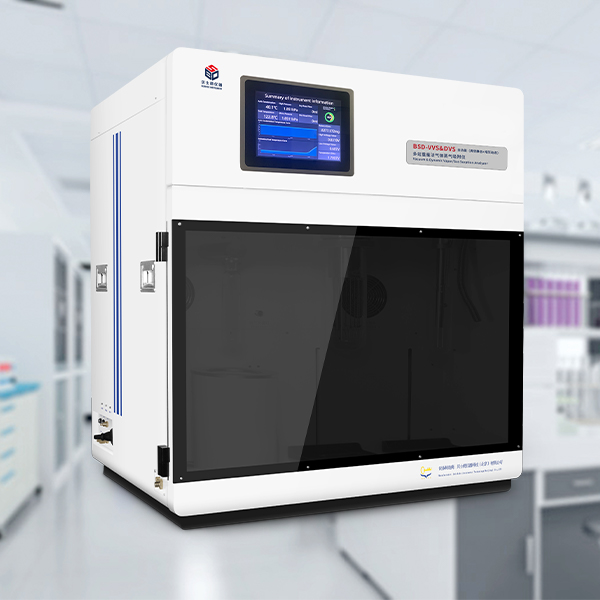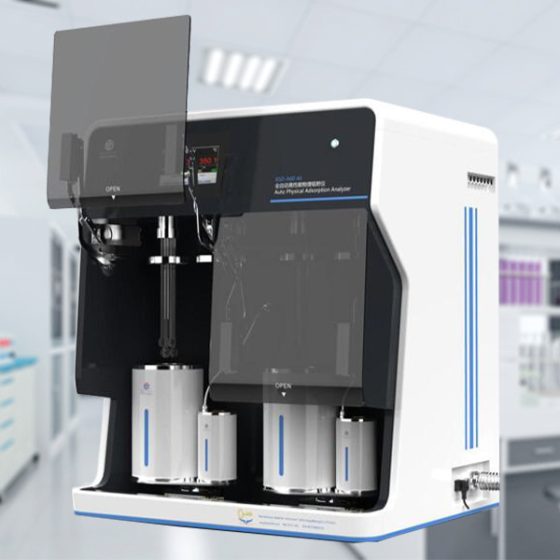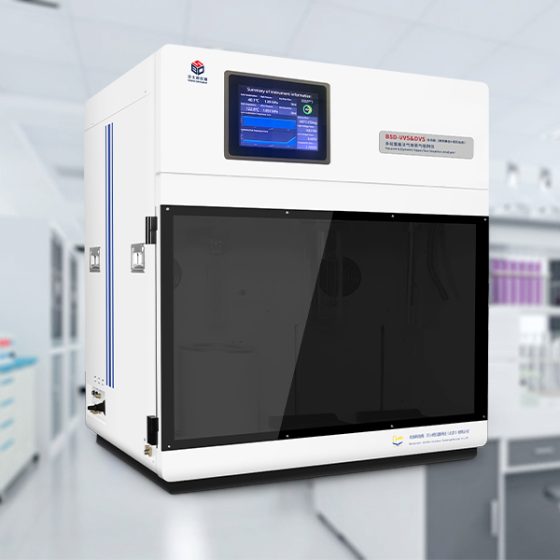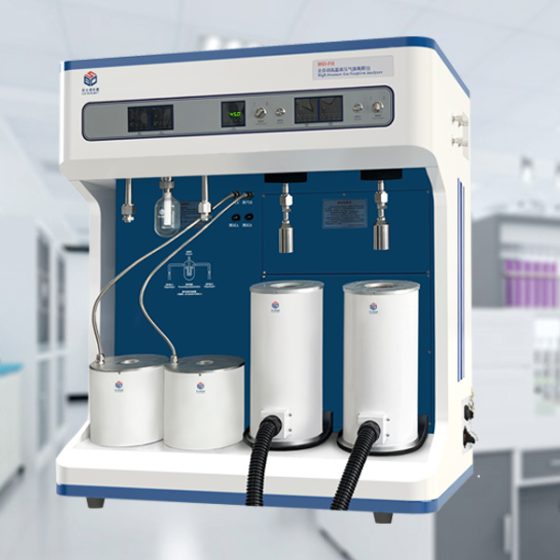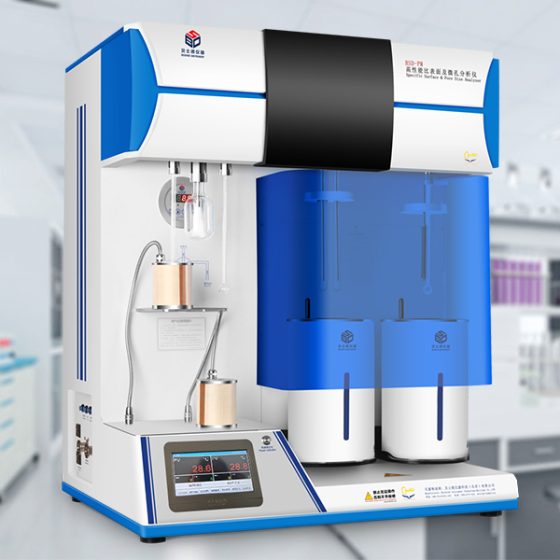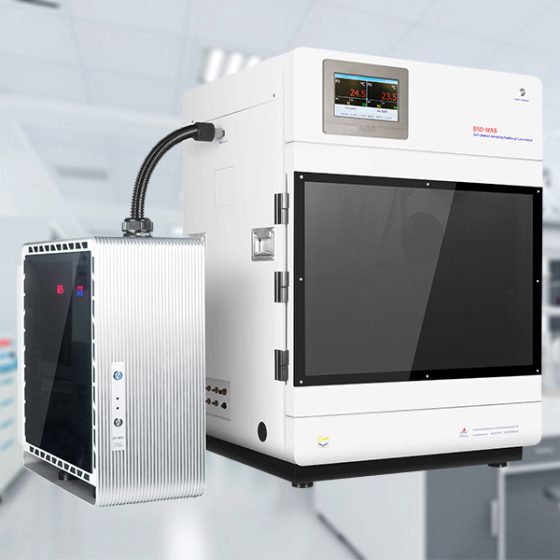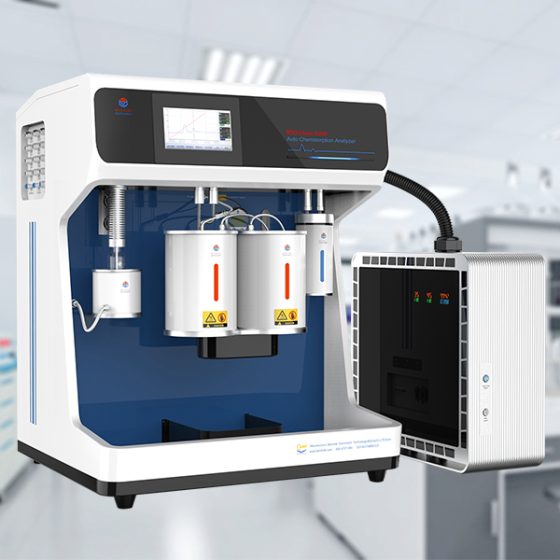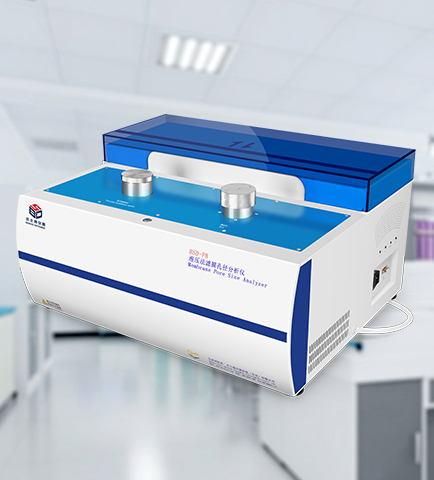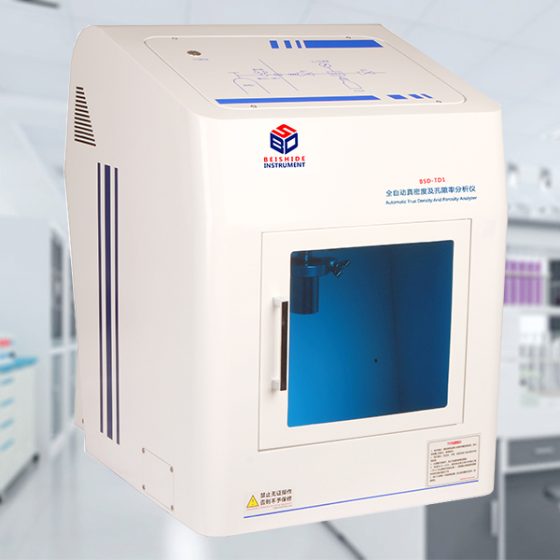Full automatic cycle adsorption lifetime assessment;
Vacuum static method;
Dynamic static method;
Full function gravimetric method;
Main Function
- Vacuum gravimetric method vaporad/desorption isotherm (VVS);
- Vacuum gravimetric method vapor equal pressuread/desorption rate (VVS);
- Vacuum gravimetric method gas ad/desorption isotherm (VGS);
- Vacuum gravimetric method gas ad/desorption rate (VGS);
- Dynamic gravimetric method vapor equal pressure ad/desorption rate(DVS);
- Dynamic gravimetric method gas ad/desorption isotherm (DGS);
- Dynamic gravimetric method gasequal adsorption desorption rate (DGS);
- Dynamic gravimetric method programmed temperature desorption (TPD);
- Vacuum gravimetric method programmed temperature degassing (TPD);
- Dynamic gravimetric method programmed temperature reduction (TPR);
- Reagent distillation and purification;
- Dynamic gravimetric programmed temperature oxidation (TPO);
- Vacuum thermogravimetric analysis
- Dynamic gravimetric method multi-component competitive adsorption evaluation;
- Upgradable for adsorption of corrosive vapors and gases (e.g. SO₂, H₂S, NH₃, etc.)
Report content
- Vacuum degassing thermogravimetric report ;
- Adsorption and desorption isotherms;
- Adsorption and desorptionrate;
- BET single point method;
- Langmuir specific surfacearea analysis;
- BJH method mesopore analysis;
- T-plot method microporous analysis;
- D-R method microporous analysis;
- HK method microporous analysis;
Performance Parameters
| BSD-VVS&DVS series Multi-station Gravimetric Vapor Sorption Analyzer | |||
| Model | BSD-VVS Vacuum Vapor/Gas Sorption Analyzer | BSD-DVS Dynamic Vapor/Gas Sorption Analyzer | BSD-VVS&DVS Vacuum & Dynamic Vapor/Gas Sorption Analyzer |
| Function | Adsorption/Desorption isotherm;
Constant pressure adsorption adsorption kinetic test; Fully automatic adsorption cycle life evaluation; |
||
| Quantity of Analytic station | 4/8 | 4/8 | 4/8 |
| Micro-balance
resolution/range |
1㎍/5000mg; 0.1㎍/500mg (Optional) | 1㎍/5000mg; 0.1㎍/500mg (Optional) | 1㎍/5000mg; 0.1㎍/500mg (Optional) |
| Adsorbate gas
type |
Water vapor, organic vapors, CO₂ and alkenes etc non-corrosive gases | Water vapor, organic vapors, CO₂ and alkenes etc non-corrosive gases | Water vapor, organic vapors, CO₂ and alkenes etc non-corrosive gases |
| NH₃, SO₂, etc
corrosive gases |
/ | Support | Support |
| Fully automatic adsorption test | Fully automatic constant pressure varying temperature sorption;
Fully automatic constant temperature varying pressure sorption; Fully automatic varying temperature and pressure sorption; Fully automatic adsorption cycle life evaluation; |
||
| BSD-VVS&DVS series Multi-station Gravimetric Vapor Sorption Analyzer | |||
| Model | BSD-VVS Vacuum Vapor/Gas Sorption Analyzer | BSD-DVS Dynamic Vapor/Gas Sorption Analyzer | BSD-VVS&DVS Vacuum & Dynamic Vapor/Gas Sorption Analyzer |
| Degassing furnace and constant temp bath | Fully automatic switch | Fully automatic switch | Fully automatic switch |
| Temperature of adsorption cavity (constant temp) | -5 centigrade to 150 centigrade
accuracy: ±0.1 centigrade |
-5 centigrade to 150 centigrade
accuracy: ±0.1 centigrade |
-5 centigrade to 150 centigrade
accuracy: ±0.1 centigrade |
| Constant temperature of gas system for anti condensation | Room temperature to 60 centigrade;
Support high temp 80 centigrade (Optional) |
Room temperature to 60 centigrade;
Support high temp 80 centigrade (Optional) |
Room temperature to 60 centigrade;
Support high temp 80 centigrade (Optional) |
| Vapor generation method | Vacuum evaporation | Carrier gas mixture flow | Both support |
| Relative humidity range
of vapor |
0.1% to 98% | 2% to 98% wider range (Optional) | 0.1% to 98% |
| Reagent tube volume | 120ml; Support reagent saturation condense recycle (Chinese patent) | 120ml; Support reagent saturation condense recycle (Chinese patent) | 120ml; Support reagent saturation condense recycle (Chinese patent) |
| Degassing activate sample Pre-treatment | Vacuum degassing;
Temperature range : room temp to 400 centigrade; accuracy: ±0.1 centigrade |
Ordinary pressure gas purging degassing; Temperature range: room temp to 300 centigrade; accuracy: ±0.1 centigrade | Both support |
Data Report
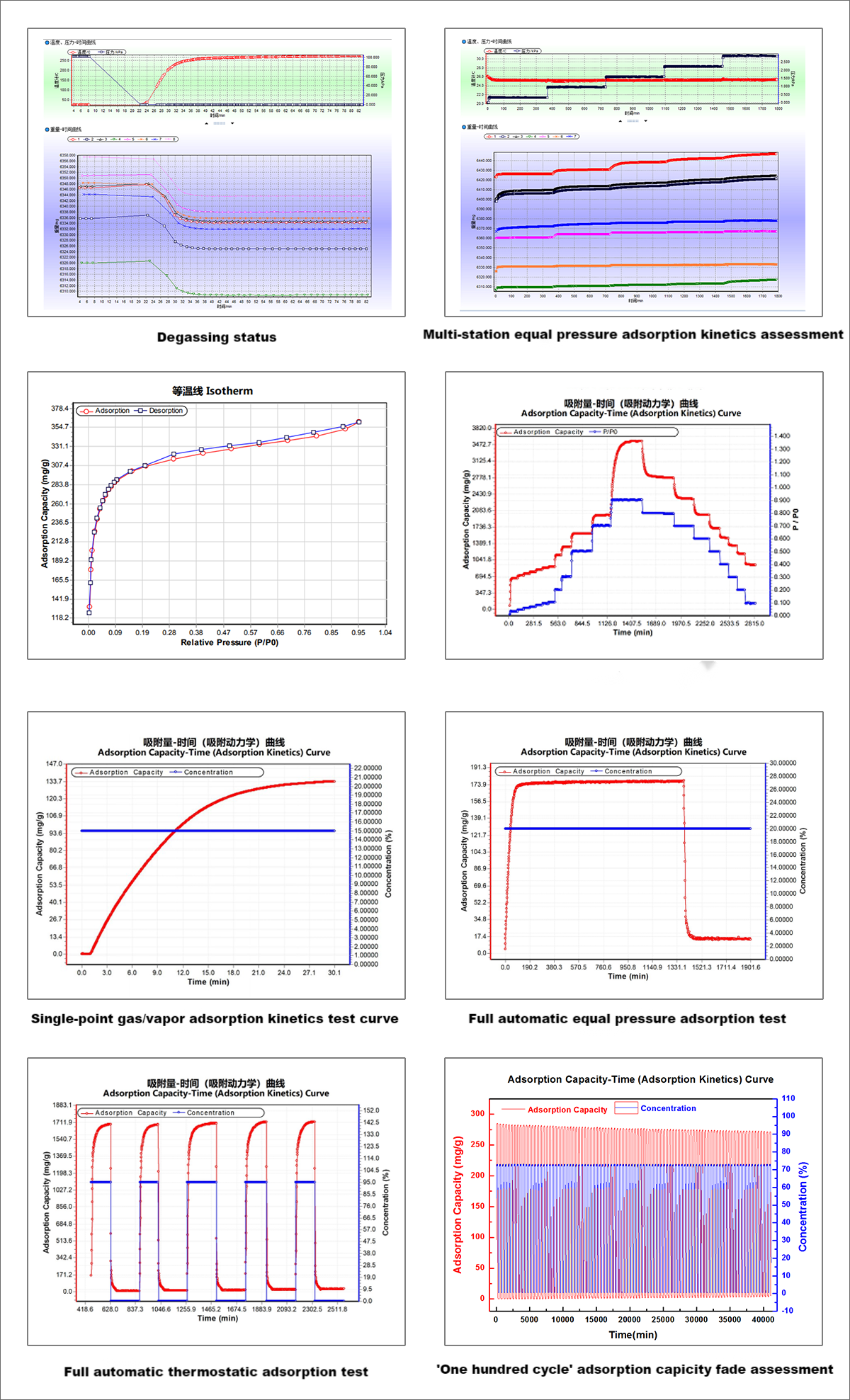
Application released paper






Difference
| Key parameters | Gravimetric method | Volume method |
| Quantitative
analysis |
Weight change of the sample before and after adsorption | Pressure change of the given volume, obtained by ideal gas equation |
| Core component and precision | Micro balance, precision better than 0.001% | Pressure sensor; precision better than 0.1% |
| Adsorbate | Organic vapors, water vapor and gas | Gas |
| Degassing pre-treatment | Obtaining the constant weight of sample can check the degassing process | Set the heating time and temperature according the experience |
| Temperature range | Not necessary | Necessary |
| Need of He | No need | Need |
| Adsorption kinetics analysis | Support | Not support |
